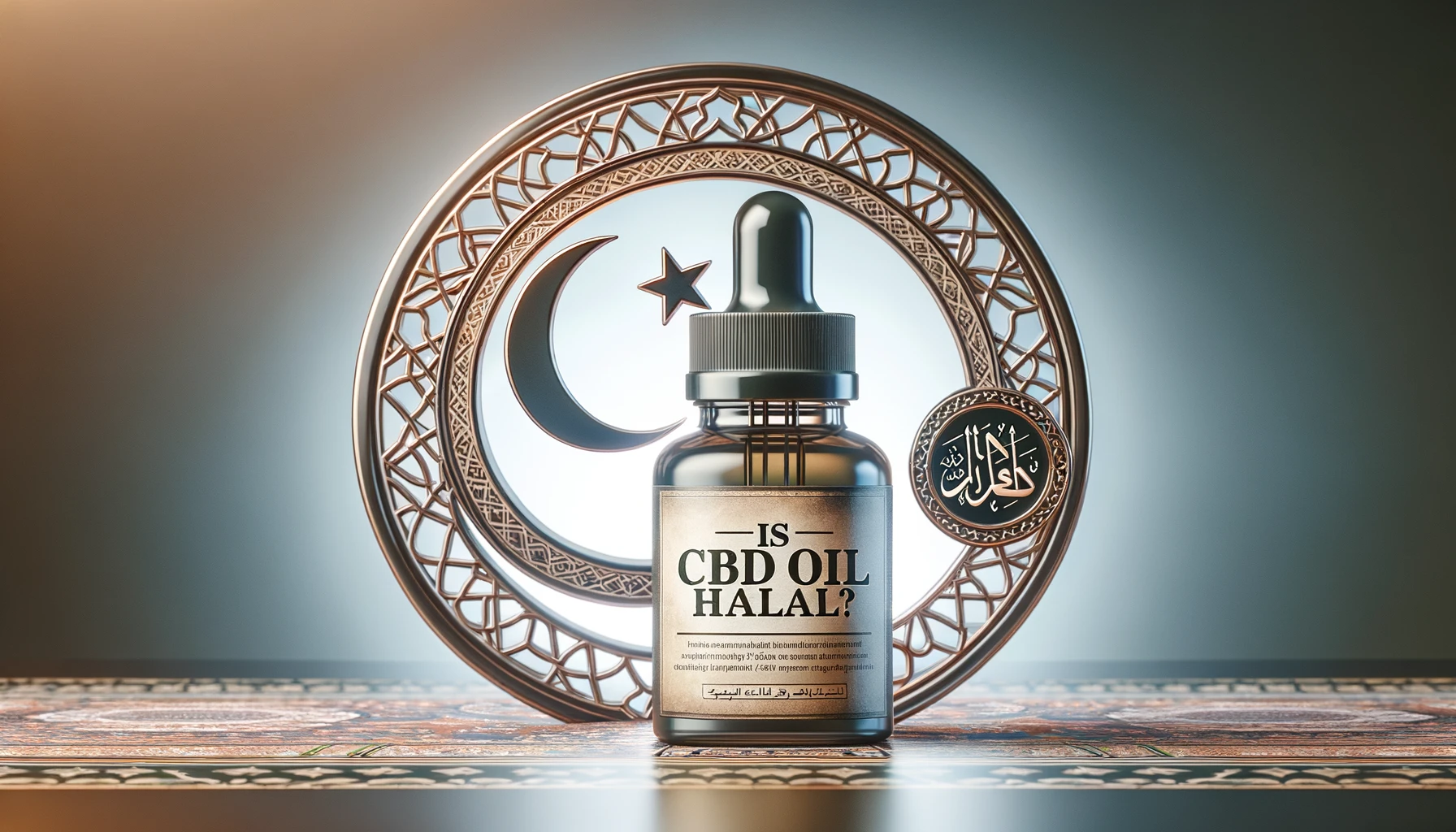1. Introduction
As CBD (Cannabidiol) oil continues to gain popularity for its potential health benefits, the Muslim community faces questions about its compatibility with Islamic dietary laws. This article seeks to address whether CBD oil is considered Halal, delving into religious, scientific, and legal perspectives to provide a comprehensive understanding.
2. Understanding CBD Oil
Definition and Origin of CBD Oil
CBD oil is a compound extracted from the cannabis plant, specifically from hemp. Unlike its counterpart THC, CBD is non-psychoactive and is not associated with the “high” commonly linked to cannabis.
Extraction and Production Process
The production of CBD oil involves extracting Cannabidiol from hemp plants, typically using methods like CO2 extraction to ensure purity and the removal of unwanted compounds, including THC.
Common Uses and Health Claims
CBD oil has been credited with a range of health benefits, from reducing anxiety and pain to improving sleep quality. These claims have been supported by a growing body of research, although more comprehensive studies are needed.
3. Islamic Perspective on Substance Use
General Islamic Guidelines on Substance Consumption
Islam’s dietary laws, known as Halal, are derived from the Quran and Hadiths. They forbid the consumption of certain substances, particularly those that are intoxicating or harmful to health.
Distinction Between Halal and Haram Substances
Substances that impair judgment or harm the body are generally considered Haram. The distinction between Halal and Haram is crucial in Islamic dietary law, guiding the consumption behaviors of Muslims.
Contextual Interpretation in Modern Times
Modern products like CBD oil require interpretation within Islamic law. Scholars often examine the substance’s composition, effects, and purpose to determine its compliance with Halal standards.
4. The Halal Status of CBD Oil
Analysis of CBD Oil Ingredients and Properties
In assessing whether CBD oil is Halal, the focus is on its intoxicating properties (or lack thereof) and the presence of any Haram substances in its composition.
Scholarly Opinions and Religious Interpretations
Islamic scholars offer diverse opinions on CBD oil. Some permit its use for therapeutic purposes if it doesn’t intoxicate, while others express caution due to its origin from the cannabis plant.
Comparison with Other Common Substances in Islam
CBD oil’s non-intoxicating nature is often compared with other substances like caffeine or medical drugs, which are permissible within certain Islamic guidelines.
5. Factors Influencing Halal Status
Source of the Cannabis Plant
The origin of the hemp plant, including how it’s grown and processed, is critical. Cross-contamination with high-THC cannabis plants can impact the Halal status of CBD oil.
Extraction and Manufacturing Process
Extraction methods that use alcohol or other Haram substances can render CBD oil non-Halal. The entire production chain needs to be Halal-compliant.
Presence of Intoxicants (THC Content)
THC is the primary intoxicant in cannabis. CBD oil with high THC levels is likely to be considered Haram, whereas products with negligible THC are more likely to be deemed Halal.
6. Case Studies and Scholarly Debates
Examples of Islamic Rulings on Similar Substances
The Islamic rulings on substances like alcohol and tobacco provide context for understanding how CBD oil might be viewed. While alcohol is clearly Haram due to its intoxicating effects, the rulings on tobacco, a non-intoxicant, vary.
Notable Scholarly Opinions on CBD Oil
Some scholars who permit the use of CBD oil do so under strict conditions, such as ensuring that it does not contain intoxicants and is used solely for medicinal purposes.
International Perspectives and Variances
Different Islamic countries and communities may interpret the Halal status of CBD oil differently, influenced by local laws, cultural practices, and predominant Islamic jurisprudence.
7. Consumer Guidance for Muslims
How to Verify Halal Certification
Muslim consumers should look for Halal certification on CBD oil products, ensuring that the product meets strict dietary standards. This certification should be from a recognized and reputable Islamic authority.
Considerations When Purchasing CBD Oil
It’s crucial to research the product thoroughly, including its source, extraction method, and ingredient list. Transparency from the manufacturer is key to ensuring Halal compliance.
Alternative Halal-Certified Products
For those uncertain about the Halal status of CBD oil, there are alternative products with clear Halal certification that can offer similar health benefits.
8. Conclusion
Determining whether CBD oil is Halal requires careful consideration of its source, composition, and effects. The diversity of opinions among Islamic scholars reflects the complexity of interpreting modern products under Islamic law. Muslims considering CBD oil should consult knowledgeable scholars and prioritize products with clear Halal certification.
9. Frequently Asked Questions (FAQs)
- Can CBD oil be used in cooking or food preparation?
- CBD oil can be used in cooking, but it must be Halal-certified to be permissible for Muslims.
- Is there a difference in the Halal status of CBD oil for therapeutic vs. recreational use?
- The intention behind using CBD oil can influence its Halal status. Therapeutic use is more likely to be permissible if the product is Halal-certified and does not cause intoxication.
- Are all hemp-derived products considered Halal?
- Not necessarily. Each hemp-derived product, including CBD oil, must be individually assessed for its Halal status based on its composition and production process.

Meet the CBDOilWow Editorial Team, a collective of CBD experts dedicated to unraveling the world of cannabidiol. With a passion for wellness and a commitment to providing the latest insights, they serve as your trusted guides in exploring the potential of CBD, ensuring you make informed choices for a healthier, more balanced life.

Leave a Reply